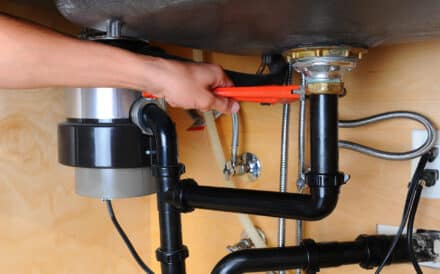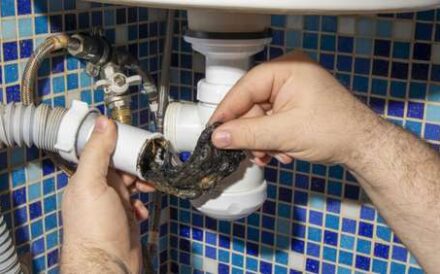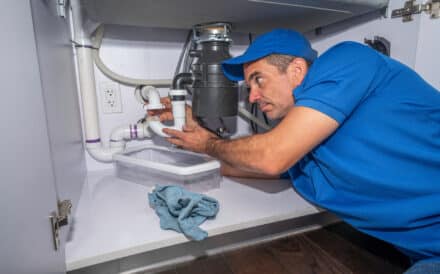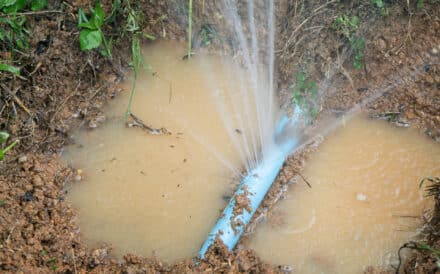How Important Is a Water Softener System for My Home?
If you’ve noticed problems with your skin, hair, and certain appliances, it may be a problem with hard water flowing through your plumbing. Hard water contains minerals like calcium and magnesium, which can lead to scale buildup in your pipes, appliances, and more. These minerals impact your water quality and can cause problems, including mineral deposits, leading to leaky faucets and clogged pipes. Investing in a water softener system can help mitigate this, but getting the right one for your needs can prove challenging if you aren’t careful.
Dangers of Hard Water for Las Vegas, NV, Homes
In Las Vegas, hard water is a common issue that homeowners often overlook. However, minerals like calcium, iron, and magnesium in your water can cause significant damage over time. Hard water contributes to scale buildup in appliances like your water heater and mineral deposits on showerheads and faucets. While these mineral deposits can lead to leaky faucets and clogged pipes, they don’t stop there. It can also impact your skin and hair, causing dryness and irritation. Water softeners, especially salt-based systems, can prevent these issues by removing calcium and magnesium ions.
Additionally, hard water can cause a drop in water pressure due to deposits and scale buildup in your pipes, affecting water flow throughout your home. Considering the energy-saving tips that come with a softener system, especially when dealing with heavy minerals, is crucial for maintaining the longevity of your plumbing and reducing household repair costs.
What Is a Water Softener?
A water softener is designed to remove hard minerals from your water supply. By eliminating these particulates, a softener helps prevent the issues associated with hard water, such as mineral deposits, scale buildup, and clogged pipes.
How Do Water Softeners Work?
Water softeners function through a relatively straightforward process called ion exchange. This process involves replacing the magnesium and calcium ions in hard water with sodium ions. In salt-based systems, water passes through resin beads, which are saturated with sodium. As the hard water flows over the beads, calcium and magnesium ions are attracted to the beads, displacing the sodium. This exchange leaves the water softened and free from heavy minerals that cause problems like mineral buildup and scale.
A dual-tank water softener, for example, allows for continuous softening even during regeneration cycles. On the other hand, salt-free water softeners don’t remove minerals but prevent them from forming scale, reducing the need to clean the water softener system frequently. Understanding your water hardness, measured in grains per gallon (gpg), and your water usage can help you choose the right softener system for your home.
Water Softeners Vs. Water Filtration – Which Is Right for My Home?
When deciding between a water softener and a water filtration system, it’s important to understand what each does for your home. Water softeners specifically target hard water issues by removing minerals like calcium, iron, and magnesium, which cause scale buildup and clogged pipes. On the other hand, a filtration system removes a wider range of impurities, including herbicides, bacteria, viruses, and pesticides, which don’t necessarily cause scaling but may affect water safety.
Depending on your water quality, you may need a system that addresses hardness and other impurities. Softeners have many benefits for homes with hard water, like reducing wear and tear on plumbing systems and appliances. However, a full filtration system might be necessary if your concern extends to water contaminants beyond minerals. Your decision should be based on your home’s water supply, hardness levels, and water softening and filtering goals.
Benefits of Installing a Water Softener
Installing a water softener offers numerous benefits for homeowners, especially those dealing with hard water. A water softener system reduces scale buildup in your plumbing, preventing drops in water pressure and extending the life of appliances like your water heater. Soft water is also gentler on your skin and hair, reducing dryness and irritation often caused by hard water. Moreover, maintaining a salt-free or salt-based water softener helps ensure that your system continues to operate efficiently, saving you from costly plumbing repairs.
Additionally, using softened water means using less soap and detergent, as these products lather better with soft water. The result is better water quality and savings on cleaning products. If you’re considering purchasing and maintaining a water softener, understanding the different types available—like metered water softeners or dual tank water softeners—will help you make the right choice for your home’s needs.
Contact Silver State & Get Your New Water Softener Installed in Las Vegas Today!
Don’t wait until hard water problems affect your plumbing system. If you’ve noticed mineral buildup, leaky faucets, or scale on your appliances, it’s time to consider a water softener installation. At Silver State, we offer expert installation of salt-based and salt-free water softeners to keep your water clean and soft. Our team can guide you through choosing the right water softener for your home, whether you’re looking for a dual-tank water softener or an electromagnetic option. We take the hassle out of dealing with water hardness by removing heavy minerals like calcium, iron, and magnesium, providing you with long-term solutions. Enjoy the many benefits of softened water, from energy savings to improved water quality. Reach out to Silver State today, and we’ll help you find the perfect water softener system for your home in Las Vegas, NV.




